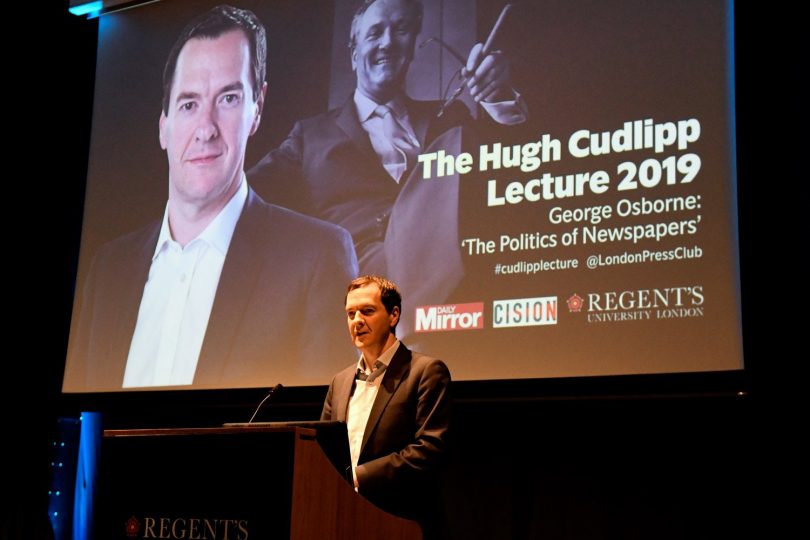‘It’s The Sun Wot Won It’. Or apparently not, according to a former Chancellor of the Exchequer. George Osborne, Chancellor from 2010 to 2016 and current Editor-in-Chief of the London Evening Standard, recently questioned the influence of the British press on election and referendum results.
Speaking at this year’s Cudlipp lecture, Osborne argued that political decisions are the result of public opinion rather than newspaper campaigns. The former Conservative MP didn’t go as far as saying newspapers weren’t important, however, as he added that the press was responsible for the direction of national conversations on politics and social issues.
Mainstream newspapers
It is legitimate to question the influence of British mainstream newspapers, as many are in decline and some, such as The Independent, can no longer afford to publish a print copy of their newspapers. However, it seems odd that Osborne recognises the influence of the press on public debate yet delineates this debate from political decisions. National debates about the direction of the country may not only be expressed via elections and referendums, but these events undoubtedly offer a chance to be vocal about political issues. To separate the influence of national newspapers from political decisions does not seem to reflect the state of politics in Britain today. This is easily demonstrated by the example of Brexit.
Sections of the British population have wanted to leave the EU ever since we joined what was then called the Common Market in 1973. In the 1975 referendum on membership of the Common Market, just over 30% of the electorate voted ‘No’ to staying in it. Most of the national press campaigned for ‘Yes’, save for The Spectator and The Daily Worker. By the late 1980s, Euroscepticism was decidedly mainstream, with The Sun exclaiming ‘Up Yours, Delors!’ in response to movements to try and make the European Community into an overtly political entity. In 2011, The Express launched a ‘Crusade for Freedom’ to garner support for leaving the EU, and in the 2016 EU Referendum, The Daily Mail, The Telegraph and The Express all supported leaving the EU. This isn’t to suggest that the national press were the only factor in increased support for leaving the EU. However, studies have found that negative coverage of the EU has doubled in the last 40 years. This is not a coincidence.
Public funding
In addition to his comments on the influence, or lack of it, that national newspapers hold, George Osborne argued that the British press should not receive any support from public funding. While the idea that journalism should not be influenced by the government is an honourable one, Osborne’s comments seem to lack nuance. To have not just a free, but a balanced press, efforts need to be made to sustain debate. An inspirational example of solidarity in the face of a diminished press is the case of L’Humanité, a communist newspaper in France. Facing bankruptcy, the paper has recently pleaded for financial support. In reaction to this, politicians from across the political spectrum have started subscribing to the newspaper and arguing that L’Humanité should receive more state aid. Although it is unlikely we would witness such a remarkable situation in Britain, perhaps we should value the ideal of a balanced press more than we currently do.









